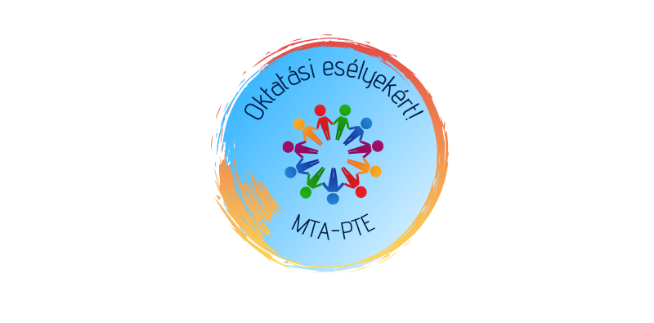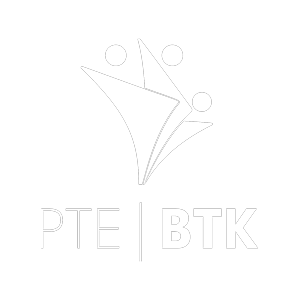
For Educational Opportunitites!
Development and Evaluation of a Career Orientation Mentor Program
In the framework of the Public Education Development Research Program of the Hungarian Academy of Sciences1, the Inclusive Excellence Research Group2 operating at the University of Pécs won support for the implementation of its plans covering 4 academic years. Our research and development group called "Educational Opportunities"3 involves, in addition to ELTE researchers, Roma student society members operating at the University of Pécs (UP), as well as the secondary institution operating the Arany János Program (Gandhi Secondary School, Dormitory and Elementary School of Music4) and its primary school partners (10 primary schools) into the planned four-year research and development work.
Seeing the problem of the difficulty of enrolling in secondary schools, the main goal of the research and development planned by our Research Group is to develop, test and measure the success of a complex elementary school career guidance and mentoring program. Research examining the prevention and prevention of early school leaving highlights the role of mentors, who can adapt to the student's life situation and needs in a personalized way and find helpful solutions.
According to a complex investigation5, Arany János Programs play an important role in the school success of disadvantaged students who attend them, and in preventing them from dropping out. It also became apparent that, despite this, it is becoming more difficult to get students into the program every year, while according to macrostatistics, there are plenty of disadvantaged students who can be admitted in the catchment area of AJP schools. Several reasons play a role in the difficulty of enrolling in school. A shorter school journey is more attractive, vocational training that also brings income during the learning period, however, it is precisely here that the high dropout rate is most characteristic. Another obstacle is that many students already accumulate such shortcomings when they enter secondary school that they are either not accepted into the Arany János Program, which supports high school graduation, or drop out due to the high requirements. Also an inhibiting factor is that neither the students nor the families are familiar with and therefore do not dare to take on the longer study paths and opportunities associated with the high school diploma. The form of further education that requires accommodation in a dormitory far from the place of residence is often alarming for them, when the student "falls out" from the family, in which he often plays a money-making role.
The career guidance mentor - the primary school teacher selected for this purpose - helps disadvantaged students to get to the Arany János Program and other secondary institutions, so that they can then obtain a secondary education there. Measuring, describing and disseminating the effectiveness of the mentoring work is the fundamental goal of our research group.
1https://mta.hu/kozoktatas-fejlesztesi-kutatasi-program/kozoktatas-fejle…
2https://btk.pte.hu/hu/tudomany/kutatokozpontok/inkluziv-kivalosag-kutat…
3Research leader: Aranka Varga (PTE), Research group members: Anikó Fehérvári (ELTE), Krisztián Kőszegi (Roma Vocational College), Gergely Horváth (PTE), Natália Jakab (Gandhi High School)
5https://pea.lib.pte.hu/handle/pea/23821
Specific plans and schedule
2021/2022 academic year
The first step of the development is the involvement of public education teachers (8-10 people) from various South Transdanubian elementary schools who have already successfully helped disadvantaged students to get to the Arany János Program. Based on their experiences and international literature, the tasks of the mentors are jointly defined, and the involved teachers are trained in a targeted manner. At the same time, the secondary school (Gandhi Gimnázium) is developing a series of multi-year programs together with the Roma specialist colleges at the University of Pécs, in which elementary school students can consciously prepare for secondary school, including participation in the Arany János Program.
2022/2023 and 2023/24 academic year
During the development process, the mentors carry out their career guidance tasks for the students at their school and at the same time connect to the series of programs offered by the secondary school. The results achieved are evaluated every academic year, and the experiences are given feedback for developmental purposes. Throughout, the development strongly builds on the horizontal learning of teachers, that is, it implements teacher workshops where they have the opportunity to exchange experiences. In this way, the mentoring work carried out among the students and the mutual learning process between teachers serving to transfer experiences are realized simultaneously, thus increasing the efficiency of the development.
2024/2025 academic year
In the last stage of the development, in addition to the ongoing mentoring work and the accompanying exchange of experience between teachers, a model-like description of the development is carried out with the involvement of teachers in order to ensure adaptability. At the same time, various studies are being conducted to measure the impact of the development. In addition, the results of the developments are presented at various teacher forums, they are incorporated into the course content of teacher training and professional examination at the University of Pécs, and publications and conference presentations are also produced.
Compiled by:
Dr. Varga Aranka PhD (varga.aranka@pte.hu, 30/6323498) research group leader
Faculty of Humanities and Social Sciences, University of Pécs
